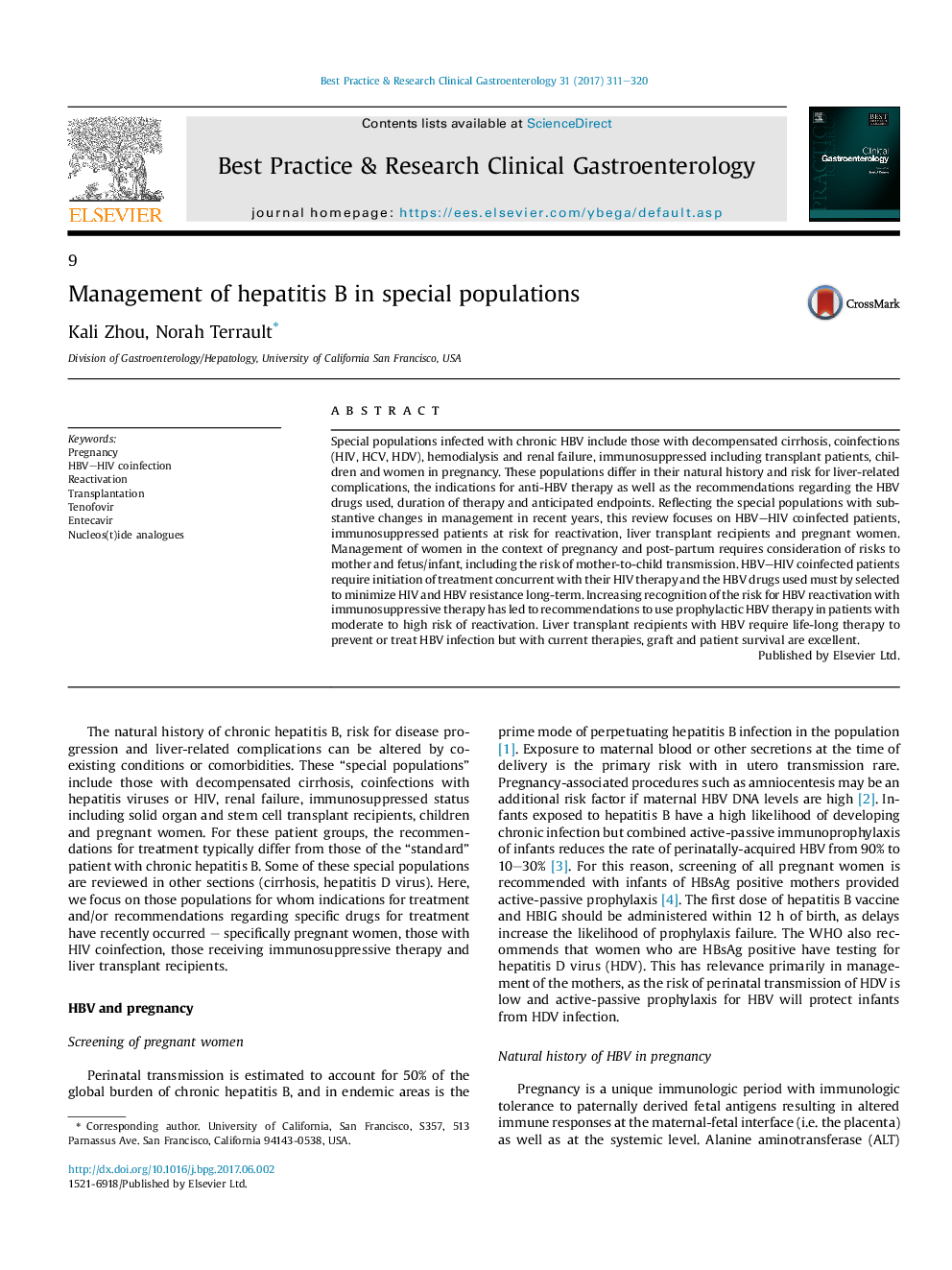| Article ID | Journal | Published Year | Pages | File Type |
|---|---|---|---|---|
| 5654499 | Best Practice & Research Clinical Gastroenterology | 2017 | 10 Pages |
Special populations infected with chronic HBV include those with decompensated cirrhosis, coinfections (HIV, HCV, HDV), hemodialysis and renal failure, immunosuppressed including transplant patients, children and women in pregnancy. These populations differ in their natural history and risk for liver-related complications, the indications for anti-HBV therapy as well as the recommendations regarding the HBV drugs used, duration of therapy and anticipated endpoints. Reflecting the special populations with substantive changes in management in recent years, this review focuses on HBV-HIV coinfected patients, immunosuppressed patients at risk for reactivation, liver transplant recipients and pregnant women. Management of women in the context of pregnancy and post-partum requires consideration of risks to mother and fetus/infant, including the risk of mother-to-child transmission. HBV-HIV coinfected patients require initiation of treatment concurrent with their HIV therapy and the HBV drugs used must by selected to minimize HIV and HBV resistance long-term. Increasing recognition of the risk for HBV reactivation with immunosuppressive therapy has led to recommendations to use prophylactic HBV therapy in patients with moderate to high risk of reactivation. Liver transplant recipients with HBV require life-long therapy to prevent or treat HBV infection but with current therapies, graft and patient survival are excellent.
